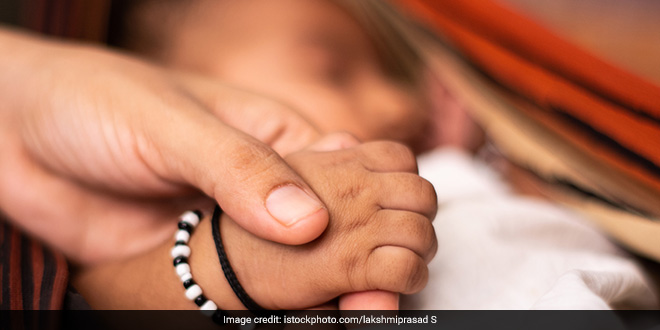Highlights
- Identification of severely acute malnourished children is being done: Govt
- Promote the use of local, affordable and safe nutrient-rich foods: Expert
- Focus on breastfeeding and exclusive breastfeeding: Expert
New Delhi: As the country celebrates the national nutrition month, experts have recommended early initiation of breastfeeding, spreading awareness on importance of nutrition at the panchayat level and promoting use of locally available, affordable and safe nutrient-rich foods as some of the measures to fight malnutrition. Every year September is celebrated as ‘Poshan Maah’ to mark the country’s fight against malnutrition. Identification of severely acute malnourished children and their management and plantation of nutri gardens, are being undertaken as focus activities during the Poshan Maah, the Women and Child Development Ministry has said.
Experts say in addition to these measures the focus must also be on early initiation of breastfeeding, spreading awareness on importance of nutrition at the panchayat level and promoting use of locally available, affordable and safe nutrient rich foods.
Rachna Sujay, senior technical advisor at NGO Alive and Thrive, said to improve the health and nutrition status of a gram panchayat, the sarpanch or mukhiya is the first responder to a large grassroots population.
By adopting following four steps, they can improve the situation of the gram panchayat and make them ‘suposhit’ (well-nourished). The first is to review the health and nutrition services being provided by all departments especially to pregnant women and infants and young children and provide necessary support and corrective action, she said. The second is community awareness campaign by panchayat leaders on right messages on health and nutrition practices, Ms Sujay said.
Third, according to Ms Sujay, is on-site visits to community-based service delivery points by the leader of the panchayat to ensure everything is in place, and to boost community’s faith into these services and fourth is how to prioritize, plan and budget health and nutrition activities in the annual Gram Panchayat Development Plans.
Apollo Purty, the state project manager at Health Nutrition and Sanitation, Jeevika Bihar, recommended ‘Poshan ke paanch sutra’.
The first is breastfeeding, early initiation of breastfeeding and exclusive breastfeeding up to six months, second is complementary feeding after six months, third is dietary diversity for pregnant woman and lactating mother to reinforce that she has to consume, fourth is promoting kitchen garden with green leafy vegetables, Vitamin A-rich vegetables and fruits and fifth is handwashing practices and now during COVID practicing social distancing.
Surabhi Jain, the chief nutritionist and lactation consultant, Nutriwell India, said breast milk can be a boon for infants which protect them from infections and other diseases.
Mother’s optimum Nutrition status and exclusive breastfeeding for initial six months followed by nutritious complementary feeding helps in decreasing infant mortality and ensuring the infant’s optimal growth and development. Educated and aware mothers and elderly women of the family can play pivotal role in a child’s overall development, Ms Jain said.
With regard to complementary feeding, she said apart from providing nutrient-dense foods under the supplementary nutrition program through Anganwadi centres it is essential that Anganwadi workers promote use of locally available affordable and safe nutrient rich foods to prepare complementary food at home and feeding the child the same in adequate quantity the right number of times.
“Poshan Mah” is celebrated under the national nutrition mission or Poshan Abhiyan which aims to tackle malnutrition in the country.
According to the National Family Health Survey-4 (NFHS-4), 38.4 per cent children under five years of age are stunted or low height-for-age and 21 per cent wasted or low weight-for-height in India. As many as 48.3 per cent of children in Bihar under five are stunted, the survey said.
(Except for the headline, this story has not been edited by NDTV staff and is published from a syndicated feed.)
NDTV – Dettol Banega Swasth India campaign is an extension of the five-year-old Banega Swachh India initiative helmed by Campaign Ambassador Amitabh Bachchan. It aims to spread awareness about critical health issues facing the country. In wake of the current COVID-19 pandemic, the need for WASH (Water, Sanitation and Hygiene) is reaffirmed as handwashing is one of the ways to prevent Coronavirus infection and other diseases. The campaign highlights the importance of nutrition and healthcare for women and children to prevent maternal and child mortality, fight malnutrition, stunting, wasting, anaemia and disease prevention through vaccines. Importance of programmes like Public Distribution System (PDS), Mid-day Meal Scheme, POSHAN Abhiyan and the role of Aganwadis and ASHA workers are also covered. Only a Swachh or clean India where toilets are used and open defecation free (ODF) status achieved as part of the Swachh Bharat Abhiyan launched by Prime Minister Narendra Modi in 2014, can eradicate diseases like diahorrea and become a Swasth or healthy India. The campaign will continue to cover issues like air pollution, waste management, plastic ban, manual scavenging and sanitation workers and menstrual hygiene.
[corona_data_new]



























